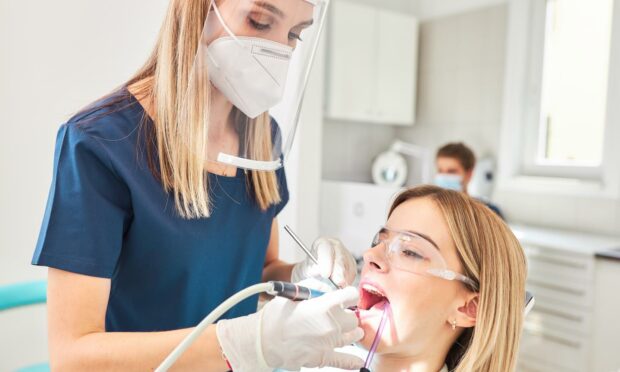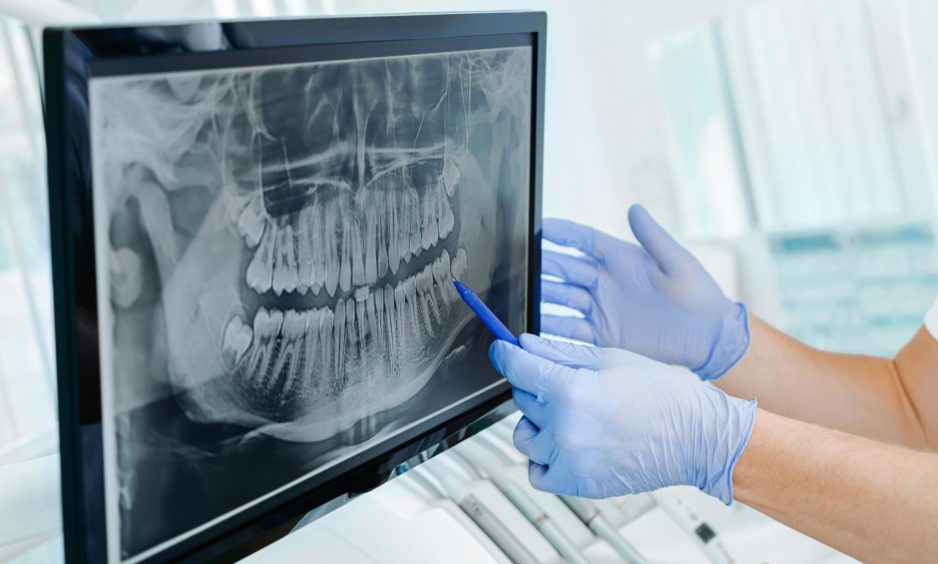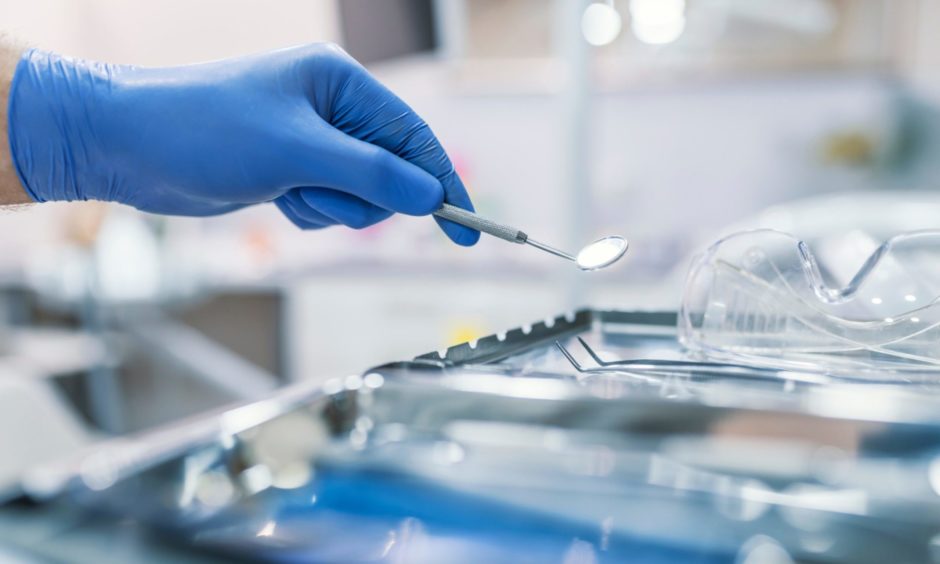There has been an increase in NHS dentists across Scotland despite the mounting pressures faced by the service, according to new figures.
Over the last three years, there has been a 1% increase in NHS dentists working across Scotland.
In 2021, there were 3,703 dentists working for the NHS in Scotland, an increase of 29 from 2019.
NHS Greater Glasgow and Clyde gained 26 new dentists between 2019 and 2020, however, lost four in 2021.
In Forth Valley, the NHS dentists increased by 10 between 2019 and 2021, with five joining in 2021 alone.
Meanwhile, some health boards faced a decrease in NHS dentists over the past three years.
For example, NHS Borders lost six dentists since 2019, equating to -9%.
However, data from NHS England and NHS Wales show more than 2,500 dentists – up to 8% of the workforce – stopped treating NHS patients last year.
This has led unions to warn that some patients face up to two-year waits for routine check-ups in health boards across England and Wales.
NHS dentist numbers across north and north-east
Across the north and north-east, the number of dentists increased in the past three years throughout the majority of health boards.
Our interactive map shows how health boards across the north and north-east compare with other areas in Scotland:
NHS Shetland, in particular, has experienced an increase of 27% after gaining four in 2021. This has raised the total number of dentists working in the area to 19.
In Orkney, there was a 13% increase of dentists working for the NHS when two joined in 2020, bringing the total to 18.
NHS Highland gained eight new dentists in 2021 after five left their positions in 2020. This means that in 2021 there were 230 dentists working in the health board.
Additionally, NHS Grampian gained five dentists in 2021, raising their total number to 374.
Although NHS Western Isles reported one new dentist joining, the health board had previously lost two dentists between 2019 and 2020.
Dental union fears ‘mass exodus’ amidst mounting pressures
Despite the increasing numbers of dentists across Scotland, the British Dental Association (BDA) believe the figures do not accurately represent the situation.
A spokeswoman for BDA said: “These figures do not capture the perilous situation facing the service in Scotland.
We are facing a mass exodus, as ministers push for a return to a high volume, low margin model of care, which is wholly incompatible with providing care during a pandemic.
“This will put practices under unsustainable financial pressure and will likely lead to closures or movement to the private sector.”
The spokeswoman also highlighted that most dentists work in “mixed practices”, meaning they carry out a combination of NHS and private care.
According to a BDA survey of 1,100 Scottish dentists, from November 2021, around 80% estimated that their practices will reduce their NHS commitment if the Scottish Government withdraws emergency pandemic support.
Over a third of dentists also indicated that they were likely to change career in the next 12 months if the service returned to pre-Covid levels of care.
Furthermore, 15% said they were likely to practice dentistry outside of Scotland.
Support during ‘challenging’ period for dentists
The Scottish Government has commented that they are delivering “record investment” in the service – with a 9% increase in the budget for NHS dental services in 2022 and 2023.
A spokesman explained that between 2007 and 2021 there has been a 39% increase in the number of “high street” dentists in Scotland.
He added: “This means that there were 55.6 dentists per 100,000 of the population providing NHS care in 2021 in Scotland, compared to England where the equivalent figure last year was 39.9.
“We’re investing heavily – including the removal of NHS dental charges during the lifetime of this parliament – to improve oral health and ensure patients get the help they need.
“We know how challenging it has been for dentists to keep services running during Covid and that’s why we’re providing dentists with an additional £20 million of increased fees from next month.
“This is in addition to the £50 million of financial support we have already given dentists through the pandemic and the £35 million of PPE we have provided to enable dentists to see patients safely.”


